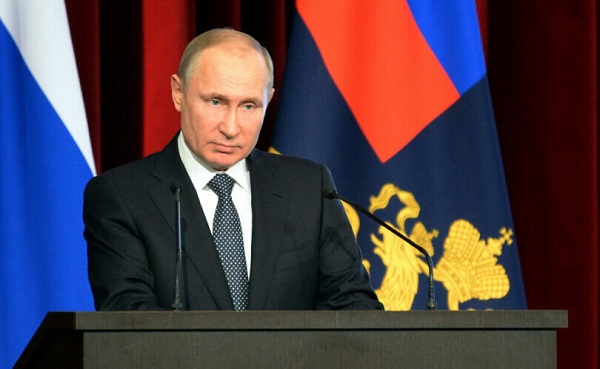Censorship Industrial Complex
The Authoritarian Legacy of Justin Trudeau

If you’re tired of censorship and surveillance, subscribe to Reclaim The Net.
Freedom in the Rearview Mirror
|
After nearly a decade in office, after attempts at photogenic diplomacy and tearful apologies, Justin Trudeau is stepping down as Canada’s Prime Minister, leaving behind a legacy as divisive as it is dramatic. To some, he was the poster child for progressive leadership, a leader who championed climate action and diversity while bringing Canada into the global spotlight.
To others, he was an over-polished politician whose tenure was defined by censorship, economic mismanagement, and the weaponization of state power against his own citizens. His resignation marks the end of an era—one defined as much by lofty rhetoric as by policies that left a deep mark on civil liberties and public trust. So, what’s Trudeau’s Canada after nearly ten years? A land of progressive aspirations or a dystopian Pinterest board?
Censorship: The Friendly Autocrat Edition
Few things capture Trudeau’s tenure better than his government’s legislative war on free speech. Let’s start with the dynamic duo of digital overreach: Bill C-10: “Regulating the Unregulatable” The saga of Bill C-10 began innocently enough. Trudeau’s government framed the bill as a noble effort to modernize the Broadcasting Act. After all, the law hadn’t been updated since 1991, back when Blockbuster was thriving and the internet was just a nerd’s dream. The goal, they said, was to “level the playing field” between traditional broadcasters and streaming giants like Netflix and YouTube. Sounds fair, right? Not so fast. The devil was in the details—or the lack thereof. The bill gave Canada’s broadcast regulator, the Canadian Radio-television and Telecommunications Commission (CRTC), sweeping authority to police online content. Originally, user-generated content like vlogs, TikTok dances, or indie films were supposed to be exempt. However, midway through the legislative process, Trudeau’s government quietly removed those exemptions. Suddenly, your cat video could be classified as “broadcast content,” giving bureaucrats the power to decide whether it met Canadian cultural standards. Critics, including legal scholars and digital rights groups, raised the alarm. They argued that the bill’s language was so vague it could allow the government to dictate what Canadians saw, shared, or created online. The specter of state-controlled algorithms choosing what gets promoted on platforms was too close to censorship for comfort. But the government dismissed the concerns, painting critics as alarmists. In Trudeau’s Canada, wanting clear limits on government power apparently made you a conspiracy theorist. Bill C-36: Hate Speech or Debate Killer? Not content to merely oversee what Canadians could create, Trudeau’s administration went a step further with Bill C-36, a supposed weapon against online hate speech. If Bill C-10 was about controlling the medium, this bill was about controlling the message.
The problem? The bill’s definition of “hate” was so expansive that it could potentially criminalize unpopular or offensive opinions. The bill didn’t just target clear-cut incitements to violence; it targeted anything deemed likely to expose individuals to “hatred or contempt.” Critics feared that “hatred or contempt” could mean anything from political dissent to sharp critiques of government policies. Even more alarming was the prospect of a “snitch culture.” The bill encouraged private citizens to report each other for suspected hate speech, potentially turning disagreements into legal battles. David Lametti, Trudeau’s Justice Minister, defended the bill, claiming it struck the right balance between free expression and protection from harm. But when legal experts and civil liberties groups united in opposition, it became clear that balance was not the government’s strong suit.
The Financial Freeze Heard ‘Round the World
|
 |
|
The Freedom Convoy protest of 2022.
|
|
The Freedom Convoy—the moment when Canada went from polite protests and Tim Hortons to frozen bank accounts and police crackdowns.
In 2022, when truckers and their supporters descended on Ottawa to protest COVID-19 mandates, Trudeau didn’t meet them with dialogue or even his trademark smile-and-wave. Instead, he dusted off the Emergencies Act, something no prime minister had dared touch before. Overnight, financial institutions became Trudeau’s personal enforcers, freezing accounts of protesters and anyone who dared to support them. Deputy Prime Minister Chrystia Freeland, Trudeau’s second-in-command at the time and a walking, talking LinkedIn connection to global elites, eagerly played bad cop. Under her direction, the financial clampdown turned Canada’s banking system into a political weapon. It wasn’t lost on critics that Freeland’s cozy ties to global financiers made the whole thing look like an international crackdown on dissent. |
 |
|
Then-Finance Minister and Deputy PM Chrystia Freeland.
|
|
And what of the precedent? Trudeau’s message was clear: disagree with the government, and you might lose access to your life savings. It was a masterclass in how to turn financial systems into handcuffs, leaving civil liberties in tatters.
The Media Muzzle: Subsidizing Obedience Also on the chopping block was journalistic independence. Trudeau’s government rolled out legislation forcing media outlets to register with a government body to qualify for funding. On the surface, this was marketed as a lifeline for struggling journalism. Because nothing says “press freedom” like reporters dependent on government handouts, right? It’s a classic move: offer financial aid with one hand and hold the leash with the other. Critics were quick to point out the slippery slope. When the same entity paying the bills also sets the rules, the line between journalism and government PR gets blurry fast. Trudeau, of course, framed this as support for democracy, but the result was a media landscape nervously eyeing its next paycheck while tiptoeing around criticism of its benefactor. Big Brother Gets a Twitter Account Then came the surveillance. Under Trudeau’s watch, Canadian intelligence agencies dramatically expanded their social media monitoring. Initially, this was framed as a necessary tool against extremism. But “extremism,” much like “disinformation,” is a flexible term in the hands of those in power. Activists and protest groups—voices traditionally central to democratic discourse—suddenly found themselves under the microscope. Imagine logging onto X to vent about a new housing policy, only to realize your tweet has been flagged by a government algorithm. The message was clear: dissent might not be illegal, but it was certainly inconvenient. Disinformation: The Government’s New Buzzword Trudeau’s pièce de résistance was his crusade against “disinformation.” This word became the Swiss Army knife of excuses, used to delegitimize critics and corral public opinion. Do you have a bone to pick with government policies? Disinformation. Questioning pandemic mandates? Disinformation. Unimpressed with Trudeau’s latest photo op? You guessed it—disinformation. To hammer the point home, his administration launched a series of public awareness campaigns, ostensibly to educate Canadians about the perils of online misinformation. These campaigns, dripping with paternalistic condescension, often blurred the line between fact-checking and outright propaganda. The subtext was unmistakable: dissent, even if rooted in genuine concerns, was a threat to national cohesion. Canada’s New Normal: The Fear of Speaking Freely The cumulative effect of these policies wasn’t subtle. Everyday Canadians began censoring themselves, not out of respect for others but out of fear of stepping on the wrong bureaucratic toes. Content creators hesitated to tackle divisive topics. Activists wondered whether their next rally would land them on a government watchlist. What was once a robust marketplace of ideas began to resemble a sparsely stocked shelf. And yet, Trudeau’s defenders remain loyal, arguing that his policies were noble attempts to safeguard society. However, as history has repeatedly shown, the road to censorship is paved with the promise of safety, but its destination is a society too scared to speak. The Legacy of Controlled Speech So what’s the verdict? Is Trudeau a misunderstood guardian of democracy, or is he the wolf who prowled under the guise of a shepherd? It’s hard to champion inclusivity and diversity when fewer voices are allowed to join the conversation. Canada may someday reckon with the full implications of these policies, but the damage is already visible. And as Canadians tiptoe around their digital platforms, one question remains: how free is a democracy where everyone whispers? |
|
|
|
You subscribe to Reclaim The Net because you value free speech and privacy. Each issue we publish is a commitment to defend these critical rights, providing insights and actionable information to protect and promote liberty in the digital age.
Despite our wide readership, less than 0.2% of our readers contribute financially. With your support, we can do more than just continue; we can amplify voices that are often suppressed and spread the word about the urgent issues of censorship and surveillance. Consider making a modest donation — just $5, or whatever amount you can afford. Your contribution will empower us to reach more people, educate them about these pressing issues, and engage them in our collective cause. Thank you for considering a contribution. Each donation not only supports our operations but also strengthens our efforts to challenge injustices and advocate for those who cannot speak out.
Thank you.
|
Censorship Industrial Complex
Ottawa’s New Hate Law Goes Too Far

From the Frontier Centre for Public Policy
By Lee Harding
Ottawa says Bill C-9 fights hate. Critics say it turns ordinary disagreement into a potential crime.
Discriminatory hate is not a good thing. Neither, however, is the latest bill by the federal Liberal government meant to fight it. Civil liberties organizations and conservative commentators warn that Bill C-9 could do more to chill legitimate speech than curb actual hate.
Bill C-9 creates a new offence allowing up to life imprisonment for acts motivated by hatred against identifiable groups. It also creates new crimes for intimidation or obstruction near places of worship or community buildings used by identifiable groups. The bill adds a new hate propaganda offence for displaying terrorism or hate symbols.
The Canadian Civil Liberties Association (CCLA) warns the legislation “risks criminalizing some forms of protected speech and peaceful protest—two cornerstones of a free and democratic society—around tens of thousands of community gathering spaces in Canada.” The CCLA sees no need to add to existing hate laws.
Bill C-9 also removes the requirement that the Attorney General consent to lay charges for existing hate propaganda offences. The Canadian Constitution Foundation (CCF) calls this a major flaw, noting it removes “an important safeguard for freedom of expression that has been part of Canada’s law for decades.” Without that safeguard, decisions to prosecute may depend more on local political pressures and less on consistent national standards.
Strange as it sounds, hatred just will not be what it used to be if this legislation passes. The core problem begins with how the bill redefines the term itself.
Previously, the Supreme Court of Canada said hatred requires “extreme manifestations” of detestation or vilification that involve destruction, abhorrence or portraying groups as subhuman or innately evil. Instead, Bill C-9 defines hatred as “detestation or vilification,” stronger than “disdain or dislike.” That is a notably lower threshold. This shift means that ordinary political disagreement or sharp criticism could now be treated as criminal hatred, putting a wide range of protected expression at real risk.
The bill also punishes a hateful motivation more than the underlying crime. For example, if a criminal conviction prompted a sentence of two years to less than five years, a hateful motivation would add as much as an additional five years of jail time.
On paper, most Canadians may assume they will never be affected by these offences. In practice, the definition of “hate” is already stretched far beyond genuine threats or violence.
Two years ago, the 1 Million March for Children took place across Canada to protest the teaching of transgender concepts to schoolchildren, especially the very young. Although such opposition is a valid position, unions, LGBT advocates and even Newfoundland and Labrador Conservatives adopted the “No Space For Hate” slogan in response to the march. That label now gets applied far beyond real extremism.
Public pressure also shapes how police respond to protests. If citizens with traditional values protest a drag queen story hour near a public library, attendees may demand that police lay charges and accuse officers of implicit hatred if they refuse. The practical result is clear: officers may feel institutional pressure to lay charges to avoid being accused of bias, regardless of whether any genuine threat or harm occurred.
Police, some of whom take part in Pride week or work in stations decorated with rainbow colours in June, may be wary of appearing insensitive or intolerant. There have also been cases where residents involved in home invasion incidents were charged, and courts later determined whether excessive force was used. In a similar way, officers may lay charges first and allow the courts to sort out whether a protest crossed a line. Identity-related considerations are included in many workplace “sensitivity training” programs, and these broader cultural trends may influence how such situations are viewed. In practice, this could mean that protests viewed as ideologically unfashionable face a higher risk of criminal sanction than those aligned with current political priorities.
If a demonstrator is charged and convicted for hate, the Liberal government could present the prosecution as a matter for the justice system rather than political discretion. It may say, “It was never our choice to charge or convict these people. The system is doing its job. We must fight hate everywhere.”
Provincial governments that support prosecution will be shielded by the inability to show discretion, while those that would prefer to let matters drop will be unable to intervene. Either way, the bill could increase tensions between Ottawa and the provinces. This could effectively centralize political authority over hate-related prosecutions in Ottawa, regardless of regional differences in values or enforcement priorities.
The bill also raises concerns about how symbols are interpreted. While most Canadians would associate the term “hate symbol” with a swastika, some have linked Canada’s former flag to extremism. The Canadian Anti-Hate Network did so in 2022 in an educational resource entitled “Confronting and preventing hate in Canadian schools.”
The flag, last used nationally in 1965, was listed under “hate-promoting symbols” for its alleged use by the “alt-right/Canada First movement” to recall when Canada was predominantly white. “Its usage in modern times is an indicator of hate-promoting beliefs,” the resource insisted. If a historic Canadian symbol can be reclassified this easily, it shows how subjective and unstable the definition of a “hate symbol” could become under this bill.
These trends suggest the legislation jeopardizes not only symbols associated with Canada’s past, but also the values that supported open debate and free expression. Taken together, these changes do not merely target hateful behaviour. They create a legal framework that can be stretched to police dissent and suppress unpopular viewpoints. Rest in peace, free speech.
Lee Harding is a research fellow for the Frontier Centre for Public Policy.
Censorship Industrial Complex
Conservative MP calls on religious leaders to oppose Liberal plan to criminalize quoting Scripture

From LifeSiteNews
Quoting the Bible, Quran, or Torah to condemn abortion, homosexuality, or LGBT propaganda could be considered criminal activity
Conservatives are warning that Canadians should be “very afraid” of the Liberals’ proposal to punish quoting Scripture, while advising religious leaders to voice their opposition to the legislation.
During a December 6 session in Parliament, Conservative Member of Parliament (MP) Larry Brock warned Canadians of the very real threat to their religious freedom thanks to proposed amendments to Bill C-9, the “Combating Hate Act,” that would allow priests quoting Scripture to be punished.
“Do Christians need to be concerned about this legislation?” MP Bob Zimmer questioned. “Does it really threaten the Bible and free speech in Canada?”
“They should be very afraid,” Brock responded. “Every faith leader should be very afraid as to what this Liberal government with the support of the Bloc Quebecois wishes to do.”
“As I indicated, religious freedom is under attack at the hands of this Liberal government,” he declared.
Brock stressed the need for religious leaders to “speak out loud and clear” against the proposed amendment and contact their local Liberal and Bloc MPs.
Already, the Canadian Conference of Catholic Bishops penned an open letter to the Carney Liberals, condemning the proposed amendment and calling for its removal.
As LifeSiteNews reported earlier this week, inside government sources revealed that Liberals agreed to remove religious exemptions from Canada’s hate speech laws as part of a deal with the Bloc Québécois to keep Liberals in power.
Bill C-9, as reported by LifeSiteNews, has been blasted by constitutional experts as empowering police and the government to go after those it deems to have violated a person’s “feelings” in a “hateful” way.
Now, the Bloc amendment seeks to further restrict free speech. The amendment would remove the “religious exemption” defense, which has historically protected individuals from conviction for willful promotion of hatred if the statements were made “in good faith” and based on a “religious subject” or a “sincerely held” interpretation of religious texts such as passages from the Bible, Quran, or Torah.
As a result, quoting the Bible, Quran, or Torah to condemn abortion, homosexuality, or LGBT propaganda could be considered criminal activity.
Shortly after the proposed amendment was shared on social media, Conservatives launched a petition, calling “on the Liberal government to protect religious freedom, uphold the right to read and share sacred texts, and prevent government overreach into matters of faith.”
Already, in October, Liberal MP Marc Miller said that certain passages of the Bible are “hateful” because of what it says about homosexuality and those who recite the passages should be jailed.
“Clearly there are situations in these texts where these statements are hateful,” Miller said. “They should not be used to invoke or be a defense, and there should perhaps be discretion for prosecutors to press charges.”
His comments were immediately blasted by Conservative politicians throughout Canada, with Alberta provincial Conservative MLA and Minister of Municipal Affairs Dan Williams saying, “I find it abhorrent when MPs sitting in Ottawa – or anyone in positions of power – use their voice to attack faith.”
-

 Alberta21 hours ago
Alberta21 hours agoThe Recall Trap: 21 Alberta MLA’s face recall petitions
-

 illegal immigration22 hours ago
illegal immigration22 hours agoUS Notes 2.5 million illegals out and counting
-

 International21 hours ago
International21 hours agoTyler Robinson shows no remorse in first court appearance for Kirk assassination
-

 Fly Straight - John Ivison2 days ago
Fly Straight - John Ivison2 days agoMPs who cross the floor are dishonourable members
-

 2025 Federal Election2 days ago
2025 Federal Election2 days agoToo Close for Comfort: Carney Floor Crosser Comes From a Riding Tainted by PRC Interference
-

 Business2 days ago
Business2 days agoThe world is no longer buying a transition to “something else” without defining what that is
-

 Energy1 day ago
Energy1 day agoCanada’s future prosperity runs through the northwest coast
-

 illegal immigration2 days ago
illegal immigration2 days agoEXCLUSIVE: Canadian groups, First Nation police support stronger border security










